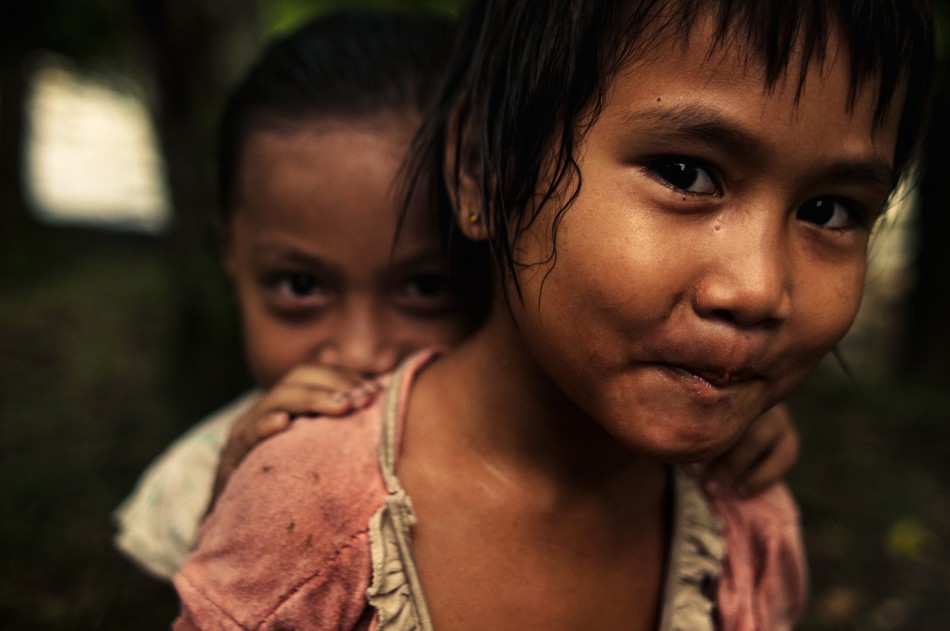Feminism In Malaysia's Indigenous Penan Tribe
Overview
The rainforests of Malaysia are known as some of the most biologically rich areas on earth, with the country currently ranked 12th in the world according to the National Biodiversity Index [1]. Whilst Malaysia is home to a wide range of animal and plant species as a result, the Sabah and Sarawak regions are also home to the Indigenous Penan Tribe. An increase in the amount of palm oil production in the area and thus deforestation has forced the Penan to adapt their nomadic lifestyles and settle into small villages, and hence are being forced to become more westernized. With this change in lifestyle lies the possibility that the status of women will also change, however the position of women within the Penan is deeply rooted in historical and cultural practices.
History
The Penan are a small indigenous tribe who have inhabited and protected the forest for generations and are one of the last hunter-gatherer tribes in the area [2]. Up until the 1960’s, most Penan lived nomadically, and are reliant on species such as the wild boar, which they hunt with silent blowpipes and poison darts. In areas where the forests have been cleared for logging and oil palm plantations, it is becoming impossible for the Penan to sustain themselves and they have been forced to settle into a much more structured way of life through the development of villages. Whilst it is estimated that roughly 12,000 Penan now live in settled communities, they continue to rely on the forest not only for their “nutrition and technology, but for their spiritual sustenance and sense of identity as people.”
Women’s Rights
Women’s rights have commonly been defined as “rights that promote a position of legal and social equality of women with men” [3] and have become an increasingly important notion in today’s day and age. The Millennium Development Goals, for example, that were set in 2000, had 6 out of the 8 goals aiming to promote gender equality and empower women. [4] However, as countries moved towards achieving these goals, their rates of progress generated estimates that it will take an average of roughly 50 years to achieve equality in parliaments, and more than 80 years before women and men are seen as equals in terms of economic participation. As a result, there is indeed a movement towards closing this gap between men and women, but even in the most developed countries, the time in which it takes to achieve this remains unclear.
Women’s Rights in the Penan Community
Most indigenous women understand that “[their] struggle as women is integrally related to the struggle for [their] control of [their] land, resources, and destinies” [5]. For many of them, women’s rights aren’t about gaining civil rights, but instead about gaining a sense of equality. Not only are women discriminated within their communities for being women, but they are also discriminated by outside communities for being Indigenous, and hence face a sense of ‘double discrimination.’ It is interesting to also note how the Penan are viewed by the Malaysian government, as depicted through the following quote:
“The government says we are animals, - like animals in the forest. We are not animals in the forest. We are Penan. Humans. I myself know I am human.” Penan spokesman, Dawat Lupung [6]
As a result, changing the rights of women is not only an internal process within the Penan Tribe, but it also requires a shift in the mindset of the national Malaysian government itself. Generally, indigenous women such as the Penan lack a number of basic human rights, such as a lack of participation in decision-making processes or a lack of access to education. More times than not, Penan women are forced to stay at home and produce goods that can be sold for trade. Baskets and furniture made out of Rattan are sold to neighbouring countries such as Brunei in order to generate an income for the community, and since the women are responsible for the production of these goods, they are required to stay at home. As a result, attending school is not a priority for the females of the Penan, and yet as the tribe becomes more involved with Western communities, more and more girls have a desire to attend school. In fact, in 2012, Lonnie Jalung became the first Penan women to ever attend higher education and become a university student [7], and was sponsored by communities such as Jerudong International School in Brunei Darussalam. Hence, we can see that although the Penan have a strong desire to maintain their historical and cultural nomadic way of life and stay true to their roots, they are also allowing women to choose what they would like to do with their lives, and hence this open minded thought in the community will hopefully allow for the increase of women’s rights within the tribe in the years to come.
References:
- ↑ Ministry of Natural Resources and Environment Ministry of Natural Resources and Environment. (2006). Biodiversity in Malaysia. Retrieved December 2, 2016, from http://www.nre.gov.my/ms-my/PustakaMedia/Penerbitan/Biodiversity%20in%20Malaysia.pdf
- ↑ Eede, J. (2014, April 17). The Penan Hunter-Gatherers of Sarawak. Retrieved December 2, 2016, from http://voices.nationalgeographic.com/2014/04/17/the-penan-hunter-gatherers-of-sarawak/
- ↑ Oxford English Dictionary, 2016
- ↑ Ford, L. (2015, March 26). Have the millennium development goals empowered women? Have the millennium development goals empowered women? The Guardian. Retrieved from https://www.theguardian.com/global-development/2015/mar/26/millennium-development-goals-empowered-women-mdgs-gender-parity
- ↑ LaDuke, W. (1994). An indigenous perspective on feminism, militarism, and the environment. Retrieved December 2, 2016, from http://www.reimaginerpe.org/node/951
- ↑ Eede, J. (2014, April 17). The Penan Hunter-Gatherers of Sarawak. Retrieved December 2, 2016, from http://voices.nationalgeographic.com/2014/04/17/the-penan-hunter-gatherers-of-sarawak/
- ↑ Shim, J. (2012, May 20). Lonnie Jalung First Penan woman to become university student. Retrieved December 2, 2016, from https://shimworld.wordpress.com/2012/05/20/lonnie-jalung-first-penan-woman-to-become-university-student/
